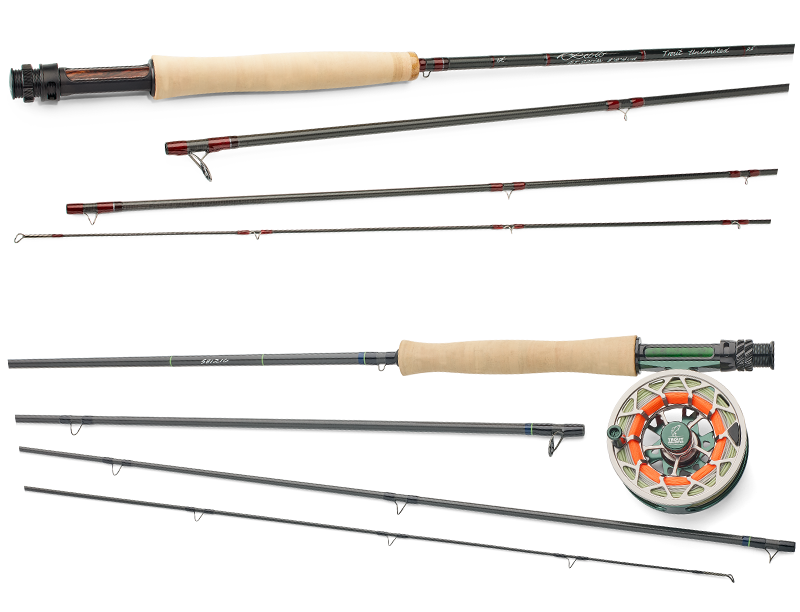170627_TU_FY18_EW_Approps_House_FNL.pdf
June 27, 2017
RE: Bureau of Reclamation FY18 Budget Request.
Dear Chairman Simpson, Ranking Member Kaptur, and Members of the Subcommittee,
I am writing on behalf of Trout Unlimited (TU) and its 300,000 members and supporters to express our views on Fiscal Year 2018 appropriations for programs within your jurisdiction which are of great interest to our members and essential to the success of our mission. We also wanted to thank you for the outstanding work you did on the FY 17 appropriations bill. It was much appreciated by western conservationists and agricultural producers alike.
TU looks forward to working with you and the Subcommittee to fund the Bureau of Reclamation’s (BOR) many programs that are critical for protecting and restoring trout and salmon resources, while providing for irrigation, energy development, and other water uses.
TU has enjoyed productive partnerships with BOR to improve stream flows and habitat for trout and salmon. The following programs support these efforts, and help BOR accomplish its mission of managing water and related resources in an environmentally and economically sound manner.
System Conservation Pilot Program (SCPP):
TU FY18 Request: $50m (as authorized by the WIIN Act)
The System Conservation Pilot Program (SCPP) is emerging as a critical tool for protecting water storage levels in the largest and most important federal reservoirs in the Colorado River Basin: Lakes Powell and Mead. SCPP supports trout fisheries in the upper basin, as well as conserving water in ways that benefit the entire Colorado River system – a novel goal that reflects increased collaboration among all water use sectors. We support funding for additional projects that shore up the Colorado River system by creating system water that benefits Lakes Mead and Powell and believe we should prioritize investment in infrastructure and water use efficiency improvement projects that have the potential for longer-term benefits even if outside of the temporary nature of the SCPP. Any proposals that take farmland out of production, even on a temporary basis, must work for agriculture and help make agriculture more efficient and stronger for the future. Any demand management projects that are contemplated should be voluntary and compensated.
SCPP has produced very promising results so far. It was launched in FY14 with $3 million in federal funds that was more than matched by $9.5 million from large cities in both the Upper and Lower Basins. In FY15, another $8.6 million in federal funds supported a similar and larger effort in the Lower Basin to protect at least 750,000 acre-feet of storage volumes at Lake Mead, with the bulk of the protection coming from water providers in the Lower Basin. Reclamation received another $5 million for SCPP in FY16.
Over the past two years we have made tremendous progress in the Upper basin. Over the past two years TU has helped enroll many new producers in the program, which, if fully funded, would have provided more than 20,000-acre feet of water from willing ranchers, and farmers in Wyoming, Utah and Colorado. Adequate funding is needed in FY18 to scale up these kinds of programs in both the Upper and Lower Basins of the Colorado River without negatively impacting agricultural production and the rural economies and communities that are dependent on these farms and ranches.
Basin-Specific Funding
Yakima River Basin Water Enhancement Project
FY17 Annualized CR: $25.8m
FY18 Administration Request: $17.1m
TU FY18 Request: $30m
TU strongly supports the Yakima River Basin Water Enhancement Project (YRBWEP). This multi-decade project aimed at meeting the needs of a diverse set of stakeholders in the Yakima basin will increase water storage, as well as install fish passage for steelhead and salmon, and guarantee greater minimum flows for these species. TU requests the appropriation of $30m to the YRBWEP for FY18 to implement authorized components of the plan, including 12-months capital construction costs for the Cle Elum Fish passage, and Cle Elum Pool Raise, as well as cost share ongoing water conservation projects under YRBWEP, and to commence environmental planning work on the Keehelus to Kachess Conveyance Project, Kachess Drought Relief Pumping Plant, and the Tieton Fish Passage project.
The FY2018 federal cost share request of $30 million would help balance significant investments of approximately $161 million by the State of Washington since 2013 into the Yakima Basin Integrated Plan. Washington State and Yakima River Basin water users shall contribute, at minimum, 50% of the overall costs to implement the Integrated Plan. The Integrated Plan is estimated to cost approximately $3.8 to 4.2 billion and take 30-years to complete. The Integrated Plan is segmented into three – 10 year periods or phases to authorize, manage and finance the plan.
Columbia and Snake River Salmon Recovery Project
FY17 Annualized CR: $18m
FY18 Administration Request: $19m
TU FY18 Request: $19m
TU supports the $19 million request for the Columbia and Snake River Recovery Project for FY18. This program helps facilitate the implementation of restoration activities mandated by the Federal Columbia River Power System biological opinions. TU has multiple cooperative agreements with the Columbia and Snake River Recovery Office to complete multi-year projects in the Methow, Wenatchee, Entiat, and Upper Salmon sub-basins that will increase stream flow and remove barriers to fish migration, helping endangered steelhead and salmon.
San Joaquin Restoration Fund
FY17 Annualized CR: $52m
FY18 Administration Request: $34m
TU FY18 Request: $36m
TU respectfully requests $36 million for the San Joaquin Restoration Fund for FY18. The San Joaquin settlement ended nearly 20 years of litigation over streamflows and salmon restoration in the San Joaquin River; the requested funds are necessary to keep the restoration agreement moving forward. Funding will allow continued progress toward salmon recovery and increased stability for affected water users, a critical investment considering California’s ongoing drought crisis.
Colorado River Basin Salinity Control Project (Title II)
FY17 Annualized CR: $8.4m
FY18 Administration Request: $8.4m
TU FY18 Request: $8.4m
TU respectfully requests the $8.4 million for the Colorado River Basin Salinity Control Project (Title II) for FY18. The Salinity Control Program supports water quality improvement projects on both public and private lands – enhancing water quality for all users in the basin. A portion of these funds are used to invest in irrigation efficiencies on private land to improve streamflow and water quality. TU is proposing to use funds from this basin-wide competitive grant program in the Henry’s Fork of the Green River (WY) and Gunnison River (CO).
WaterSMART Program
Basin Studies
FY17 Annualized CR: $5.2m
FY18 Administration Request: $5.2m
TU FY18 Request: $5.2m
TU supports the FY18 budget request for continued funding of $5.2 million for Basin Studies under the WaterSMART program. TU has been an active participant in Basin Study efforts in the Colorado, Yakima, and Henry’s Fork watersheds. These studies provide a tool for bringing together diverse interests in a basin to project long-term water supply needs and demands and proposing ways to address imbalances. Basin Studies develop a diverse set of management scenarios such as water conservation, changes in supply and demand, and climate modeling. The Basin Studies are a critical tool for the future long-term management of large river basins in an increasingly arid West.
WaterSMART Grants
FY17 Annualized CR: $29m
FY18 Administration Request: $23.4m
FY18 Request: $30 million
TU respectively requests $30 million to the WaterSMART Grants program for FY18. WaterSMART grants represent an innovative approach to prioritizing projects with water efficiency savings to help ensure on-the-ground conservation benefits, and complement the Basin Studies program by targeting funds to projects that address concerns raised in respective studies. For example, TU has worked with the agricultural community, Sun River Watershed Group, and other local stakeholders to secure multiple WaterSMART grants for the Sun River in Montana. The funds have been instrumental in helping to meet streamflow restoration needs while also updating irrigation infrastructure. The WaterSMART grants have helped producers move toward a modernized system that provides for both river health and ranch and farm operation needs.
Cooperative Watershed Management Program
FY17 Annualized CR: $0.75m
FY18 Administration Request: $1.75m
FY18 Request: $1.75m
TU respectfully requests that you provide $1.75 million for the Cooperative Watershed Management Program. This program supports the formation and development of locally-led watershed groups and facilitates the development of multi-stakeholder watershed management projects. Funding for the Act will expedite the formation of successful watershed processes throughout the Colorado River Basin, and in other high-priority basins.
Conclusion
Thank you for considering our views and recommendations. Reclamation has been an outstanding partner in trout and salmon habitat conservation, and providing funding levels for the programs detailed above will help the TU/BOR partnership – and other productive partnerships – continue in FY18.
Sincerely,
Steve Moyer


